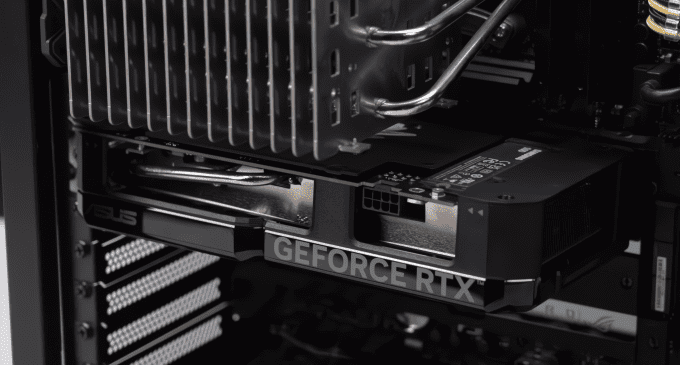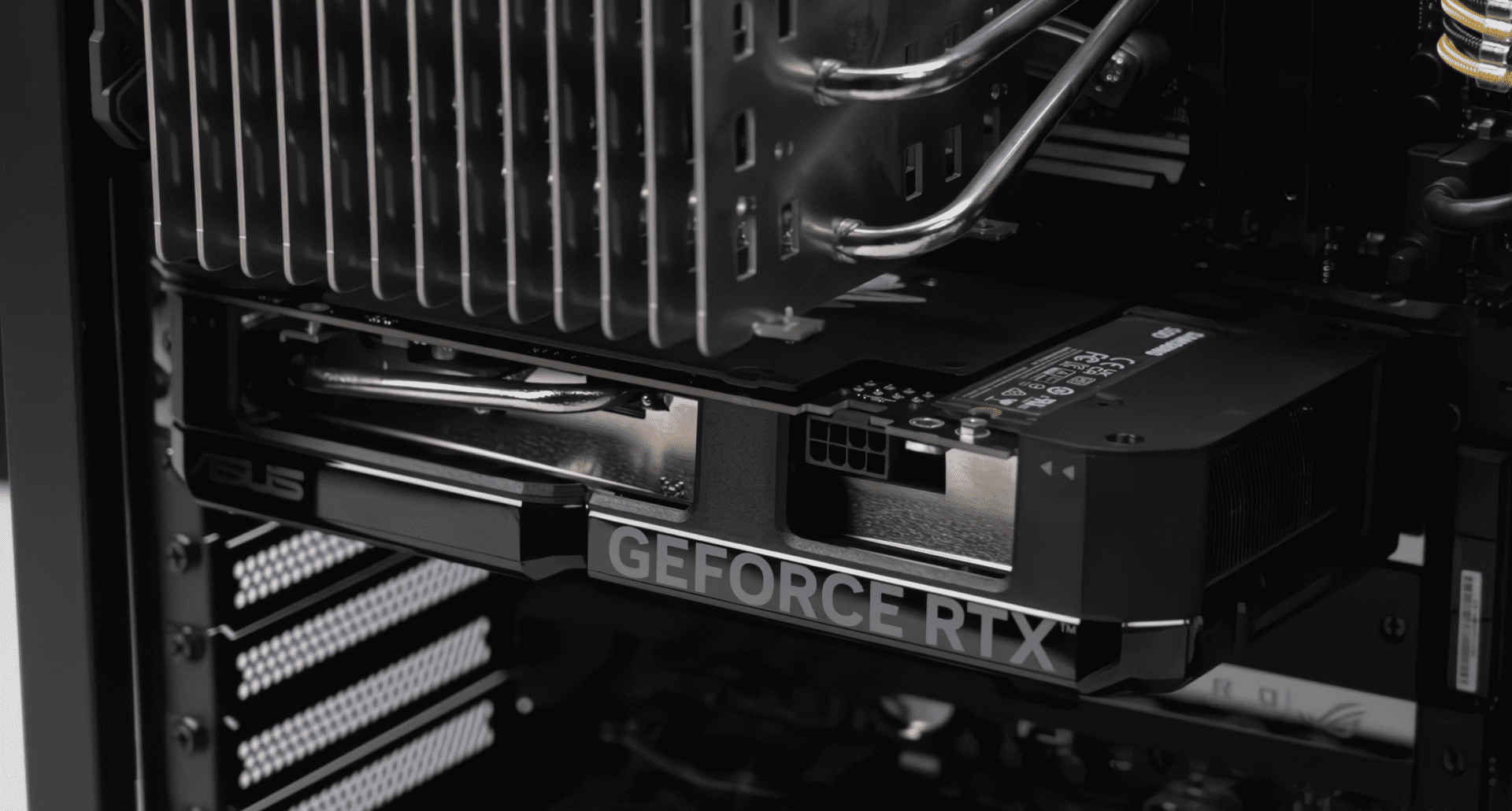Already for the weekend of the video Bilibili Information and images of the GeForce RTX 4060 Ti designed by ASUS have appeared. The card is a concept that is being tested in this model.
If you look at the new releases of graphics cards, it is noticeable that both AMD and NVIDIA want to save on chip space, thus designing the PCI Express interface on eight lanes. This applies to the GeForce RTX 4060 (test) as well as the Radeon RX 7600 (test) and also the GeForce RTX 4060 Ti (test), which ASUS took as an opportunity for this concept.
Of course, a slot still makes room for 16 lanes, and often such a card will find its place on a motherboard in a slot connected via 16 lanes. On the concept card there is now an M.2 slot on the PCB, which drives four lanes into the slot behind the existing eight lanes of the GPU. Theoretically, it would of course also be possible to present two M.2 slots at the same time and thus fully occupy the remaining eight lanes.
The video demonstrates use with the Samsung 980 Pro, which also achieves the possible throughput rates. This should come as no surprise, since the PCI Express lanes in the graphics card slot are usually directly connected to the processor and thus offer the best performance. The SSD, located on the front of the PCB, is cooled via the graphics card cooler. The SSD is powered by the graphics card. In the case of the GeForce RTX 4060 Ti, the cards have an 8-pin connector, so GPU and SSD provisioning isn’t a problem.
In some cases, combining a graphics card and an SSD definitely makes sense as an upgrade option for an older system. For example, if you’re still using a GeForce GTX 970, you might also have a system without an M.2 slot. Such a user can then switch to a GeForce RTX 4060 Ti and also get an M.2 slot for a matching SSD.
However, the motherboard must also support PCI Express lane bifurcation. This is the ability to split PCI Express lanes into a slot. If 16 lanes are connected to a slot with this card and hyperlinking is not supported, two PCI Express devices cannot run in that single slot, since the 16 lanes are always paired together. However, division into 8/8 actually enables playback. For two SSDs on the card, it should be possible to split them into 8/4/4.
The idea of installing an SSD on a graphics card already exists. AMD relies on an SSD of up to 2TB for its Radeon Pro SSG. The data on the SSD can be processed faster by the GPU. However, there were no other applications of this kind.

“Social media evangelist. Baconaholic. Devoted reader. Twitter scholar. Avid coffee trailblazer.”












More Stories
Longest jets in the universe discovered – giant particle streams as long as 140 Milky Way galaxies in a row
New method reveals 307 supernova remnants
Snapchat is upping the ante on augmented reality glasses